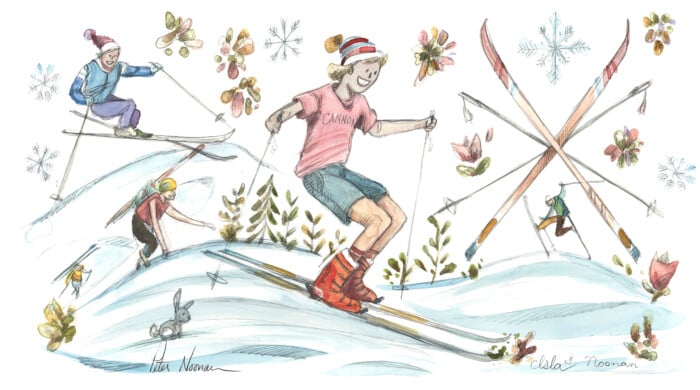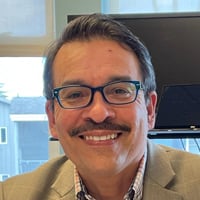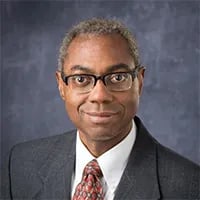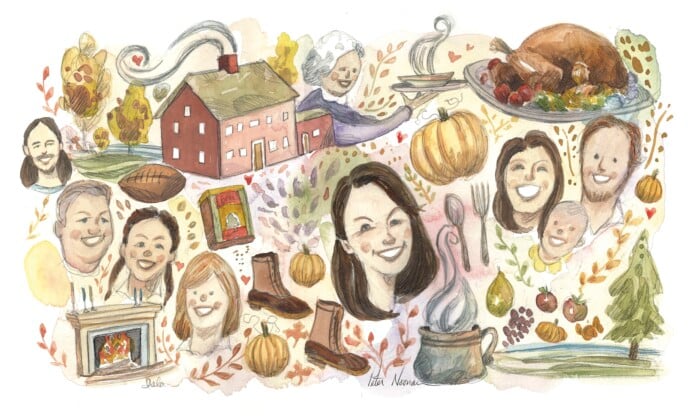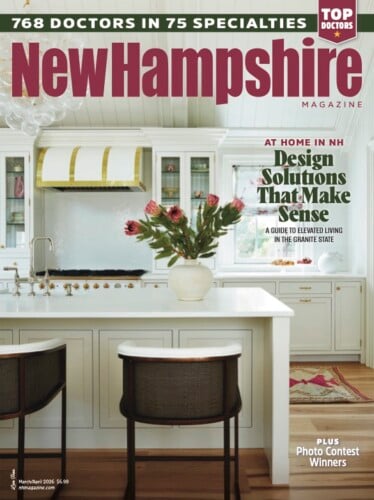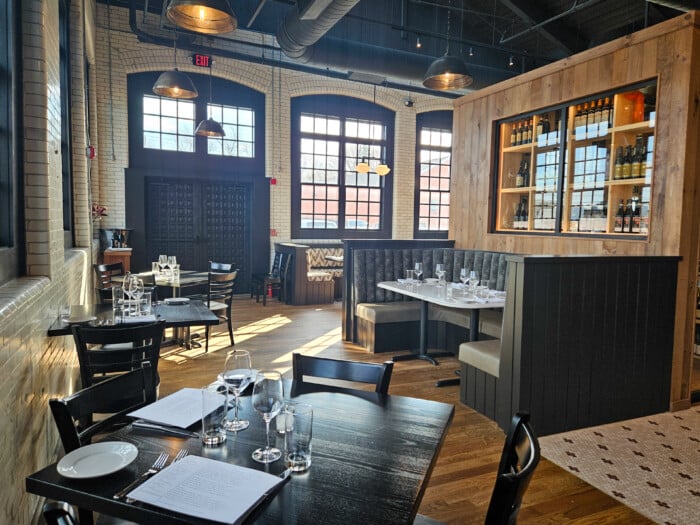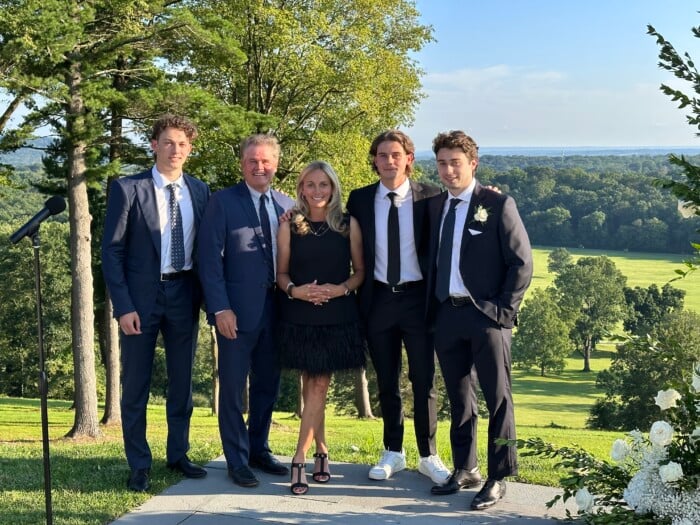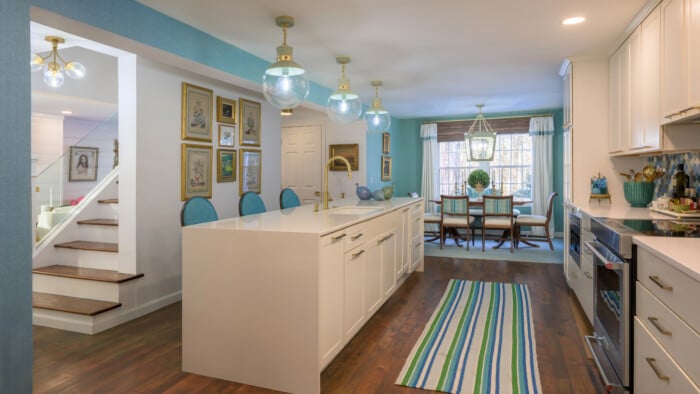Live Free: The Ballad of Upright Hank
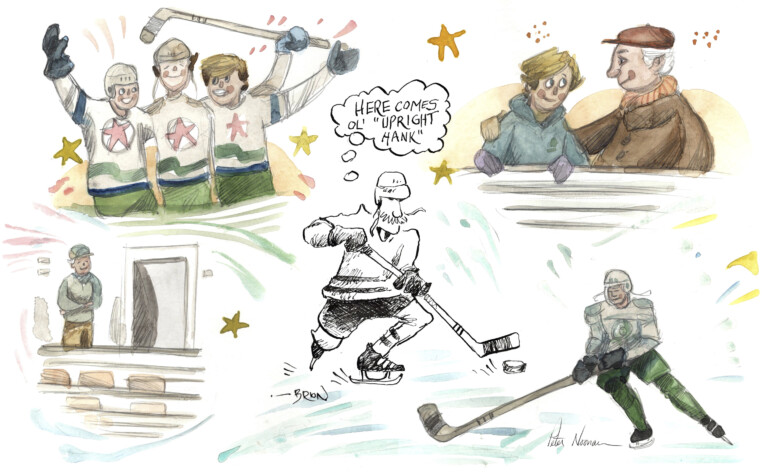
Last June, my cousin, Dr. Amy Paré, sent me a text. She was helping my uncle, Dr. William Paré, organize the large home he shares with my Aunt Marilyn. Amy’s text included a cartoon I drew on the envelope of a letter I’d written in the early 1980s to Uncle Bill’s father — our Grandpère.
Henry Paré immigrated to the Granite State from Quebec as a teenager, finding work with Public Service Company of New Hampshire. He married Laura Trudel, and settled on Manchester’s West Side. I loved being with him. My father was a sports fan, but worked long hours. Grandpère, who particularly enjoyed baseball and hockey, became our sports muse.
He regaled his grandchildren with wildly exaggerated tales of his competitive exploits, assuming the nickname “Upright Hank.” It was perfect — silly and self-effacing. The cartoon I drew more than 40 years ago was of “Upright Hank,” skating down the ice, puck on his stick.
It was late winter of 1982, my penultimate year at the University of New Hampshire, when my Sigma Beta intramural hockey squad played for the ballyhooed campus championship. Comically, I wasn’t even a Sigma Beta brother. A couple of hockey-playing pals belonged, and they needed a goalie. I was recruited as a “social member.” That arrangement — all the benefits, no initiation — suited me fine.
After a competitive season, the title game at Snively Arena came down to our Greek crew against Congreve Hall, the dorm where I lived (one of my best friends, a Derryfield School graduate named Geoff Brown, was the other goalie). It was a spirited match. Knowing I was hobbled by a hamstring tear, my Beta teammates stepped up admirably. We won, 4-3, barely surviving a furious Congreve onslaught in the final minutes.
It was only the second title of any significance that I’d won (after Manchester Central’s city soccer championship in 1974). The madcap joy of the Beta boys far exceeded the game’s importance. But, it was fun.
On the bench, as I slowly peeled off my sweat-soaked gear, I noticed a solitary figure sitting in the stands, taking in the mêlée. The older gentleman — maybe a custodian — was dressed in dark blue chinos, a dark blue shirt, and a gray sweater. I immediately thought of Grandpère, who often came to my high school practices and games. But there was a championship party to attend. I packed up and headed out.
The next day, though, the image of the older man in the stands stayed with me. All I could think of was Grandpère, watching me play during my short two years at Manchester Central. I didn’t recall the games, when JFK Coliseum or another local barn was filled with friends and family members. I thought of the after-school practices, when the building was practically empty except for the players and coaches on the ice. There was Grandpère, always, observing dutifully from the stands.
Afterward, I’d load my equipment into Coach Finnegan’s wagon, and Grandpère drove me home. He’d offer advice, and I would ignore it. I had become, like too many teenagers, far too smug. But by February of 1982, I’d matured a little. In hindsight, I saw how much being there meant to Grandpère. I realized how much it meant to me. I wrote him a short letter of thanks, including the aforementioned cartoon, to say how grateful I was.
Years later, at Grandpère’s funeral, Uncle Bill rose to speak. He produced my letter, apologized for not asking permission, and then shared it with the congregation.
“After all these years, just like when we were kids, he was still looking after his family,” said Uncle Bill.
I sobbed.
For the next 40 years, my cartoon stood on a cherished spot on Uncle Bill’s office desk. Thanks to my uncle’s generosity, it now graces my home office. It’s a wonderful memento. I only hope I can be there for my grandchildren, like “Upright Hank” was for us.
